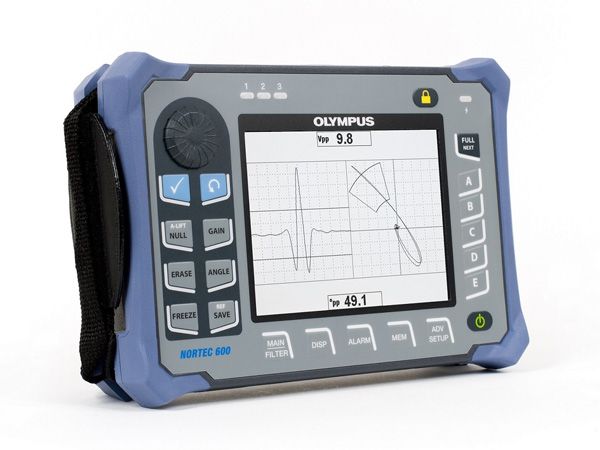
Eddy Current Tester

An Eddy Current Tester is a non-destructive testing (NDT) instrument used to detect surface and near-surface defects in conductive materials. It works on the principle of electromagnetic induction, where an alternating current flows through a coil, generating a changing magnetic field. When this coil is placed near a conductive material, eddy currents are induced in the material. Variations in these currents caused by flaws, cracks, or changes in material properties are detected and analyzed by the tester.
This technique is widely used in industries like aerospace, automotive, manufacturing, and power generation for quality control, thickness measurement, crack detection, and material sorting.
Key Features
- Non-destructive testing method – no damage to the specimen during inspection.
- High sensitivity – capable of detecting minute surface cracks and defects.
- Portable design – often handheld or compact for field use.
- Digital display – provides real-time readings and defect signals.
- Versatility – can be used for conductivity measurement, coating thickness measurement, and flaw detection.
- Adjustable frequency range – enables testing of different materials and depths.
- Probe variety – supports different probes (pencil, rotating, surface, inside diameter) for specific applications.
- Data recording and analysis – many modern units store inspection data for later review.
- Calibration options – ensures accurate and repeatable measurements.
- Applications – crack detection in aircraft components, tube inspection in power plants, weld testing, and material property evaluation.